
The Clash were an English rock band formed in London in 1976 who were key players in the original wave of British punk rock. Billed as "The Only Band That Matters", they also contributed to the post-punk and new wave movements that emerged in the wake of punk and employed elements of a variety of genres including reggae, dub, funk, ska, and rockabilly. For most of their recording career, the Clash consisted of lead vocalist and rhythm guitarist Joe Strummer, lead guitarist and vocalist Mick Jones, bassist Paul Simonon, and drummer Nicky "Topper" Headon.
Roots reggae is a subgenre of reggae that deals with the everyday lives and aspirations of Africans and those in the African Diaspora, including the spiritual side of Rastafari, black liberation, revolution and the honoring of God, called Jah by Rastafarians. It is identified with the life of the ghetto sufferer, and the rural poor. Lyrical themes include spirituality and religion, struggles by artists, poverty, black pride, social issues, resistance to fascism, capitalism, corrupt government and racial oppression. A spiritual repatriation to Africa is a common theme in roots reggae.

Lee "Scratch" Perry was a Jamaican record producer, composer and singer noted for his innovative studio techniques and production style. Perry was a pioneer in the 1970s development of dub music with his early adoption of remixing and studio effects to create new instrumental or vocal versions of existing reggae tracks. He worked with and produced for a wide variety of artists, including Bob Marley and the Wailers, Junior Murvin, The Congos, Max Romeo, Adrian Sherwood, Beastie Boys, Ari Up, The Clash, The Orb, and many others.
Dub is an electronic musical style that grew out of reggae in the late 1960s and early 1970s. It is commonly considered a subgenre of reggae, though it has developed to extend beyond that style. Generally, dub consists of remixes of existing recordings created by significantly manipulating the original, usually through the removal of vocal parts, emphasis of the rhythm section, the application of studio effects such as echo and reverb, and the occasional dubbing of vocal or instrumental snippets from the original version or other works.

"Punky Reggae Party" is a song by Bob Marley, recorded and released in 1977. Not appearing on any studio album, it was released in 1977 as a 12-inch single in Jamaica only on the Tuff Gong and Lee Perry's Black Art labels, as a B-side to the "Jamming" single on Chris Blackwell's Island Records label in some countries and was later released as a live single on Babylon by Bus. Subsequently, it appeared on a number of compilations and "Best of" albums as well as the Deluxe Edition of Exodus and the 2002 CD reissue of Legend.
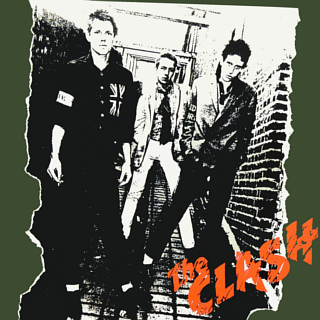
The Clash is the debut studio album by the English punk rock band the Clash. It was released on 8 April 1977 through CBS Records. Recorded and mixed over three weeks in February 1977 for £4,000, it would go on to reach No. 12 on the UK charts, and has been included on many retrospective rankings as one of the greatest punk albums of all time.

Sandinista! is the fourth studio album by the English punk rock band the Clash. It was released on 12 December 1980 as a triple album containing 36 tracks, with 6 songs on each side. It crosses various genres including funk, reggae, jazz, gospel, rockabilly, folk, dub, rhythm and blues, calypso, disco, and rap. For the first time, the band's songs were credited to The Clash as a group, rather than to Joe Strummer and Mick Jones. The band agreed to a decrease in album royalties in order to release the 3-LP at a low price.
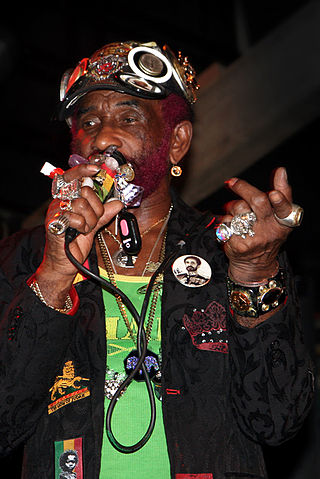
The Upsetters was the name given to the house band for Jamaican reggae producer Lee "Scratch" Perry. The name of the band comes from Perry's nickname of Upsetter, after his song "I Am the Upsetter", a musical dismissal of his former boss Coxsone Dodd.
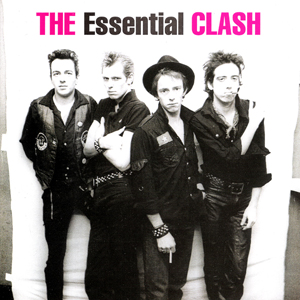
The Essential Clash is a career-spanning greatest hits album by The Clash first released in 2003. It is part of the ongoing 'The Essential' Sony BMG compilation series. The album is dedicated to Joe Strummer, who died during its compilation.

"(White Man) In Hammersmith Palais" is a song by the English punk rock band the Clash. It was originally released as a 7-inch single, with the b-side "The Prisoner", on 16 June 1978 through CBS Records.
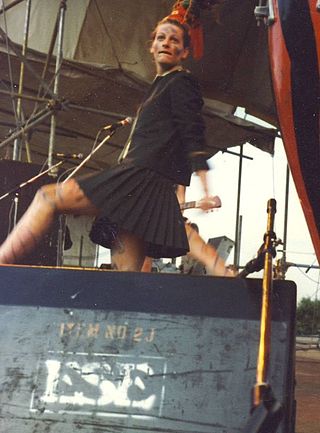
Ariane Daniele Forster, known by her stage name Ari Up, was a German vocalist best known as a member of the English punk rock band the Slits.
Lester Bullock, better known by the stage name Dillinger, is a Jamaican reggae artist. He was part of the second wave of deejay toasters who rose to prominence during the mid-1970s.

"Complete Control" is a song by The Clash, released as a 7" single and featured on the U.S. release of their debut album.

Michael George Campbell, better known as Mikey Dread, was a Jamaican singer, producer, and broadcaster. He was one of the most influential performers and innovators in reggae music.
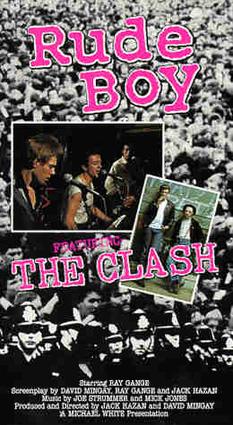
Rude Boy is a 1980 British film directed by Jack Hazan and David Mingay and filmed in 1978 and early 1979.
"The Guns of Brixton" is a song by the English punk rock band the Clash, originally released on their 1979 album London Calling. It was written and sung by bassist Paul Simonon, who grew up in Brixton, South London. The song has a strong reggae influence, reflecting the culture of the area and the reggae gangster film The Harder They Come.

Junior Murvin was a Jamaican reggae musician. He is best known for the single "Police and Thieves", produced by Lee "Scratch" Perry in 1976.
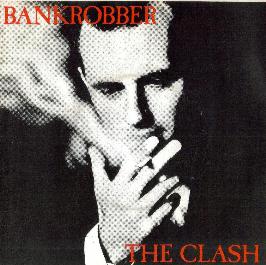
"Bankrobber" is a song by English punk rock band the Clash. The song was not released on any of their studio albums, instead appearing on their compilation Black Market Clash. Upon its 1980 release as a single it peaked at number 12 on the UK Singles Chart, and at number 14 on both the Irish Singles Chart and the New Zealand Singles Chart.
Jah Lloyd, aka Jah Lion, The Black Lion of Judah, and Jah Ali was a Jamaican reggae singer, deejay and producer.

Arkology is a compilation album by Lee "Scratch" Perry. Released in 1997, the album collects tracks produced by Perry and recorded at the Black Ark studio.















